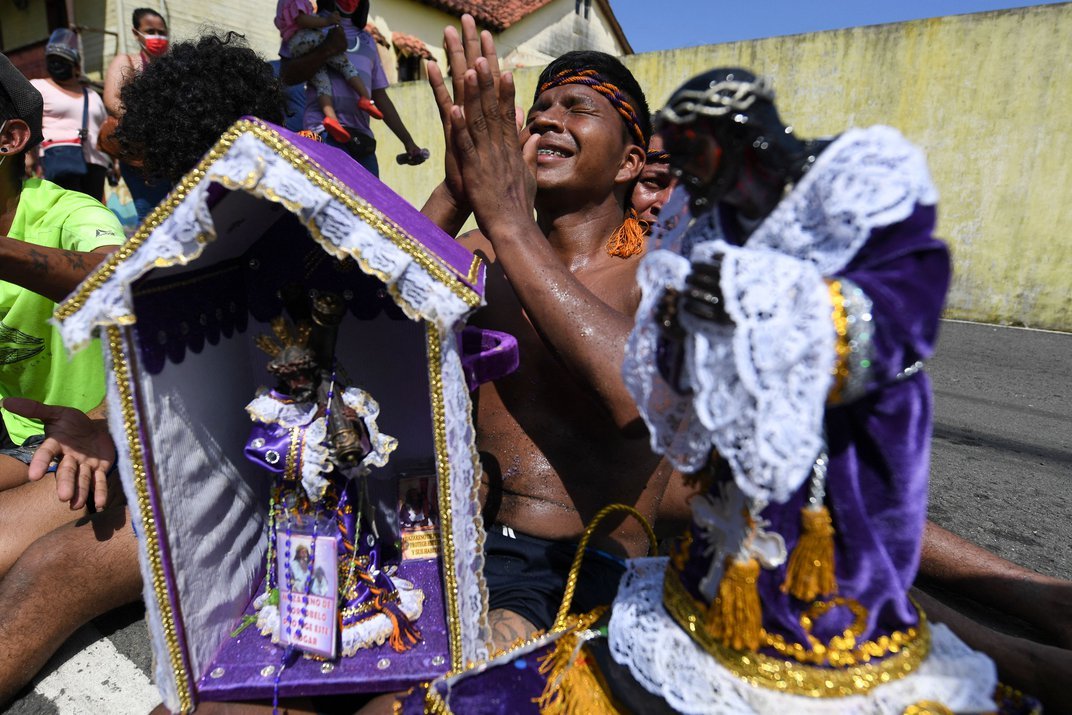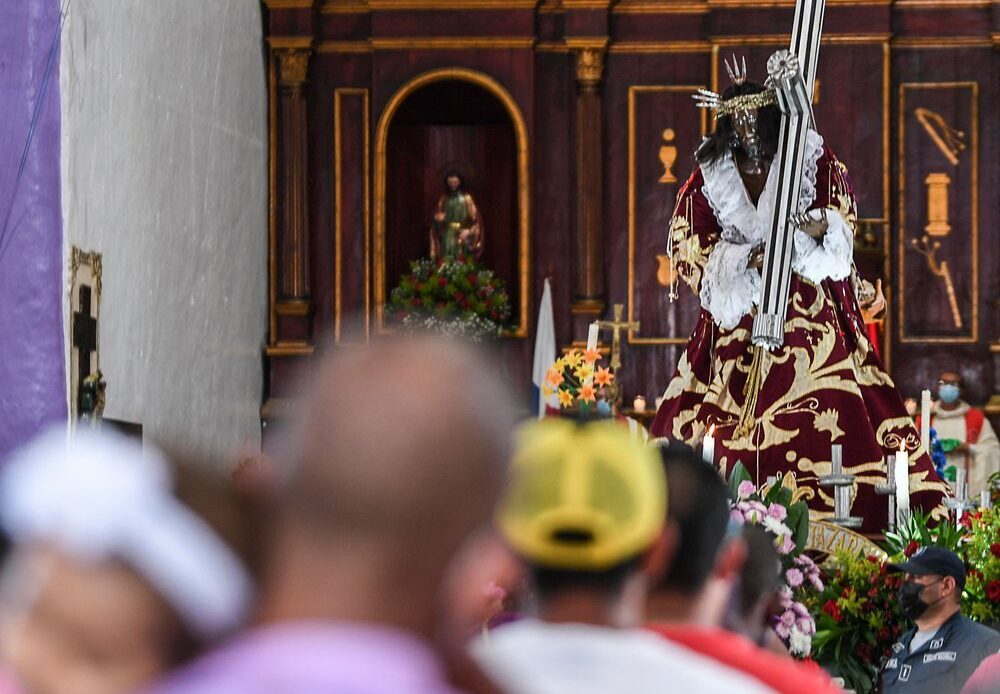On October 21, some 60,000 pilgrims descend on the town of Portobelo, Panama, to celebrate the Festival del Cristo Negro.
Luis Acosta/AFP via Getty Images
For three days each October, 26-year-old Evelyn Guerra treks 50 miles up and down jungled hills, until she reaches the Caribbean town of Portobelo, Panama, and the Festival del Cristo Negro. Along with several changes of clothes for the route’s rain and dirt, she brings a special treasure: a shoebox-sized, plexiglass diorama lined in Christmas lights she hand-glued around the edges, inside of which is a figure of a Black Jesus Christ. It’s a homemade, miniature version of the eight-foot-tall statue known as El Nazareno she, her father and thousands of faithful are traveling to see.
This year, on October 21, some 60,000 pilgrims will descend on the town to celebrate not only their Catholic religion, but also their Afro-Panamanian identity.
“The festival is more than a religious celebration,” writes theologian S. Kyle Johnson in a piece published by The Conversation in 2019. “It is a form of protest against Spanish colonialism, which brought with it slavery and racism.”
Other communities throughout Central America and Mexico host venerations to a Black Christ, and “such festivals play a crucial role for historically oppressed peoples,” Johnson writes, as a protest against the image of a raceless or white Jesus.
Participants march in procession with their dioramas, or nichos, of the Black Christ. Luis Acosta/AFP via Getty Images
More than one-third of Panama’s gene pool is of African origin, and today nearly one in four citizens identifies as Afro-Panamanian, according to the country’s National Institute of Statistics and Census. The data suggest that more and more Panamanians are embracing their roots: the number of those identifying as Afro-Panamanian increased almost 200 percent over the past decade.
According to historian Kaysha Corinealdi, who researches Afro-Panamanian identity at Emerson College, the Festival del Cristo Negro is a humble way for everyday Panamanians to connect with their past. Her scholarly work maps how activism and community were used across the Americas to battle racism, marginalization and white supremacy, and she sees the festival as an outlet for that….
Click Here to Read the Full Original Article at Travel | smithsonianmag.com…
